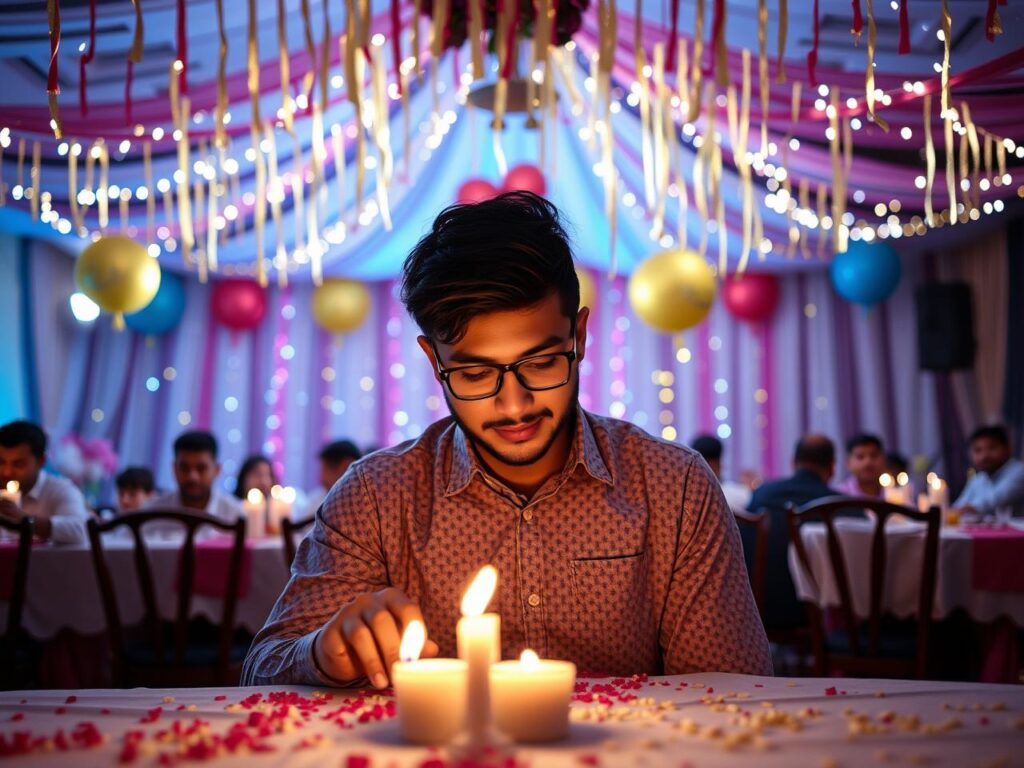How to Survive a Social Event Without Leaving Your Comfort Zone (a.k.a. the Couch)
Understanding your comfort zone is essential when preparing for an event. The comfort zone refers to a psychological state where an individual feels at ease, in control, and experiences minimal anxiety and stress. It’s important to note that comfort zones vary among individuals, and what one person finds comfortable may be uncomfortable for another.
Recognizing your personal comfort zone allows for better event preparation and management of potential discomfort. One method to identify your comfort zone is through reflection on past experiences. Analyze situations where you felt comfortable and those where you experienced anxiety or stress.
Identify contributing factors such as event size, specific individuals present, or activities involved. This self-analysis helps pinpoint elements that contribute to your comfort or unease, enabling informed decision-making for approaching upcoming events and maintaining comfort levels. It’s crucial to recognize that comfort zones can evolve over time.
What was once comfortable may no longer be, and vice versa. Regular self-assessment of comfort levels in various situations is important. Staying aware of your feelings and reactions allows for better navigation of events and decision-making aligned with your current comfort zone.
Key Takeaways
- Understand that your comfort zone is unique to you and it’s okay to feel uncomfortable in new situations.
- Prepare mentally for the event by visualizing yourself in the environment and practicing relaxation techniques.
- Set realistic expectations for the event and be open to the possibility of feeling a little uncomfortable at first.
- Bring a comfort item with you, such as a favorite book or a piece of jewelry, to help ease any anxiety.
- Find a safe space at the event where you can take a break and regroup if you start to feel overwhelmed.
Preparing Mentally for the Event

Visualize Success
Visualizing the event beforehand can help alleviate feelings of apprehension and build confidence. Take some time to imagine yourself at the event, engaging in conversations, and participating in activities. Visualizing a positive experience can help you feel more prepared and confident in your ability to navigate the event successfully.
Practice Relaxation Techniques
Practicing relaxation techniques can also help calm your mind and body, making it easier to cope with nerves or tension leading up to the event. Deep breathing, meditation, or progressive muscle relaxation can all be effective in reducing anxiety and promoting a sense of calm.
Set Realistic Expectations
It’s essential to set realistic expectations for the event. Rather than putting pressure on yourself to have a perfect experience, remind yourself that it’s okay to feel a little uncomfortable at times.
By acknowledging that some level of discomfort is normal, you can reduce the likelihood of feeling overwhelmed if things don’t go exactly as planned.
By incorporating these techniques into your routine before the event, you can cultivate a sense of calm and readiness to face any challenges that may arise, allowing you to approach the event with a more flexible and open mindset.
Setting Realistic Expectations

Setting realistic expectations for the event is crucial for managing your own emotions and reactions. It’s important to remember that not every event will be perfect, and that’s okay. By setting realistic expectations, you can reduce the pressure you may be putting on yourself and allow yourself to enjoy the experience for what it is.
One way to set realistic expectations is by acknowledging that not every interaction will be meaningful or memorable. It’s natural to have small talk with people you may not connect with deeply, and that’s okay. By accepting this reality, you can release any pressure to make every conversation profound and instead focus on simply being present and engaged in the moment.
Another aspect of setting realistic expectations is recognizing that not every moment of the event will be enjoyable. There may be lulls in conversation, moments of boredom, or times when you feel out of place. By acknowledging this possibility, you can prepare yourself mentally for these moments and remind yourself that they are temporary.
This mindset can help you navigate any discomfort with greater ease and prevent feelings of disappointment if things don’t go exactly as planned. It’s also important to set realistic expectations for yourself in terms of socializing and participation. If you’re introverted or shy, it’s okay to take breaks from socializing and find moments of solitude throughout the event.
By giving yourself permission to take care of your own needs, you can prevent feelings of overwhelm and exhaustion, allowing yourself to fully engage in the parts of the event that bring you joy.
Bringing a Comfort Item with You
Bringing a comfort item with you to the event can provide a sense of security and familiarity in an unfamiliar environment. This could be anything from a favorite piece of jewelry or clothing to a small token that holds sentimental value. Having this item with you can serve as a source of comfort and reassurance, helping to ground you in moments of unease.
Another benefit of bringing a comfort item is that it can serve as a conversation starter with others at the event. If someone notices your item and asks about it, it can provide an opportunity to connect with them on a personal level and potentially form a new bond. This can be especially helpful if you’re feeling nervous about engaging in small talk or meeting new people.
It’s important to choose a comfort item that is discreet and easily portable so that it doesn’t become a burden during the event. Whether it’s a small trinket in your pocket or a piece of jewelry that you wear, having this item close at hand can provide a sense of familiarity and stability in an unfamiliar setting.
Finding a Safe Space at the Event
Finding a safe space at the event can provide a much-needed retreat if you’re feeling overwhelmed or anxious. This could be a quiet corner of the venue, an outdoor area away from the crowd, or even a designated relaxation room if one is available. Taking a few moments to step away from the hustle and bustle of the event can help you recharge and regroup before rejoining the activities.
Another benefit of finding a safe space is that it allows you to take a break from socializing if you’re feeling drained or overstimulated. It’s okay to prioritize your own well-being and take time for yourself when needed. By finding a safe space, you can honor your own needs and prevent feelings of burnout or exhaustion.
If you’re attending the event with someone else, such as a friend or family member, consider designating them as your “safe space buddy.” This person can provide support and companionship if you need a break from the crowd, offering a sense of security and comfort in an unfamiliar environment.
Engaging in Small Talk and Conversation

Breaking the Ice with Open-Ended Questions
One way to approach small talk is by asking open-ended questions that invite others to share about themselves. This can help break the ice and create opportunities for deeper conversation.
The Power of Active Listening
Another strategy for engaging in conversation is active listening. Show genuine interest in what others are saying by maintaining eye contact, nodding in agreement, and asking follow-up questions. By demonstrating attentiveness and empathy, you can create a sense of connection with others and foster meaningful interactions.
Embracing the Simplicity of Small Talk
It’s also important to remember that not every conversation needs to be profound or life-changing. Sometimes, simple exchanges about everyday topics can lead to unexpected connections and shared experiences. By approaching small talk with an open mind and a willingness to engage, you can create opportunities for genuine connection with others at the event.
Knowing When It’s Okay to Leave
Knowing when it’s okay to leave the event is an important aspect of self-care and boundary-setting. If you find yourself feeling overwhelmed, exhausted, or simply ready to go home, it’s okay to listen to your own needs and make the decision to leave. Prioritizing your well-being is essential for maintaining a positive experience at the event.
One way to gauge whether it’s okay to leave is by checking in with yourself periodically throughout the event. Pay attention to how you’re feeling physically and emotionally, and consider whether staying longer will contribute positively to your overall well-being. If you find that leaving would be more beneficial for your mental health, don’t hesitate to make that choice.
If possible, communicate with any companions you may have at the event before leaving. Letting them know that you’re ready to go home can help prevent any misunderstandings or concerns about your sudden departure. By being open and honest about your needs, you can ensure that everyone involved feels respected and understood.
In conclusion, preparing for an event involves understanding your comfort zone, setting realistic expectations, and taking steps to manage any anxiety or stress that may arise. By bringing a comfort item with you, finding a safe space at the event, engaging in small talk and conversation, and knowing when it’s okay to leave, you can navigate the event with greater ease and confidence. Remember that it’s okay to prioritize your own well-being and make choices that align with your own comfort levels.
By taking proactive steps to prepare mentally for the event, you can create a positive experience that aligns with your own needs and preferences.
FAQs
What are some tips for surviving a social event without leaving your comfort zone?
Some tips for surviving a social event without leaving your comfort zone include setting small, achievable goals, practicing deep breathing and positive self-talk, and bringing a friend or support person with you.
How can I prepare myself mentally for a social event?
You can prepare yourself mentally for a social event by visualizing a positive outcome, reminding yourself of past successes, and focusing on the present moment rather than worrying about the future.
What are some strategies for managing anxiety at a social event?
Strategies for managing anxiety at a social event include practicing relaxation techniques, such as deep breathing and progressive muscle relaxation, challenging negative thoughts, and using distraction techniques, such as focusing on a specific object or engaging in conversation.
Is it okay to take breaks during a social event if I feel overwhelmed?
Yes, it is okay to take breaks during a social event if you feel overwhelmed. Taking breaks can help you recharge and regroup, allowing you to better manage your anxiety and enjoy the event.
How can I politely decline invitations to social events if I feel uncomfortable attending?
You can politely decline invitations to social events by expressing gratitude for the invitation, providing a brief explanation for why you are unable to attend, and suggesting an alternative way to connect, such as meeting for coffee or chatting on the phone.







